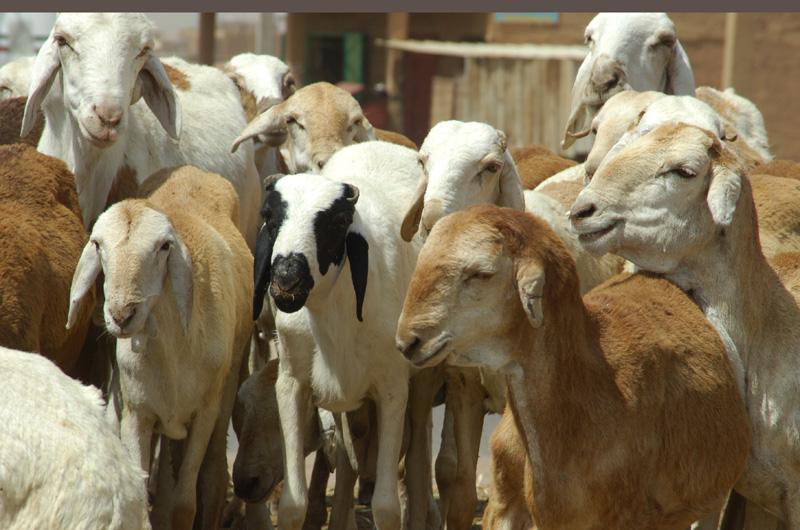RSF command dispute halts sheep transport to Port Sudan

Sheep in a Darfur market (File photo: SUNA)
A dispute between Rapid Support Forces (RSF) commanders in Um Rawaba, North Kordofan, reportedly halted 20 lorries carrying sheep to Port Sudan amid disputes over transit fees, local sources say. Merchants in El Obeid, already struggling with power outages and high water prices, fear increased humanitarian suffering.
The RSF in control of Um Rawaba in Sudan’s North Kordofan, stopped 20 lorries loaded with sheep being transported to Port Sudan for export. A local source told Radio Dabanga that there were disagreements between RSF commanders in the area regarding the levies imposed on transport vehicles. “The disagreement reached its peak when one RSF commander insisted on allowing transport lorries to cross for SDG100,000 per vehicle, while another commander insisted on transit fees of SDG1 million.”
RSF paramilitaries stationed at the western entrance to El Obeid, capital of North Kordofan, ordered drivers of lorries loaded with goods from El Nehoud in West Kordofan to return. The vehicles had already passed the Um Samima area, where the owner of each lorry paid SDG1.5 million transit fees to the RSF.
Merchants in El Obeid fear that the disputes between the RSF commanders will lead to more humanitarian suffering in the city, where electricity outages entered the third week in a row yesterday, and drinking water prices are soaring. “We now pay SDG5,000 for a barrel of water,” the source lamented.
Int’l warnings
In her briefing on Sudan to the Security Council in New York on Wednesday, UN Special Advisor on the Prevention of Genocide Alice Wairimu Nderitu also noted the constrained freedom of movement in the country. “Parties to the conflict, de facto authorities and armed groups continue to levy so-called ‘protection fees’ and arbitrary ‘taxes’ on the civilian population.”
Nicholas Stockton, former UN and Oxfam official, expressed his belief that the main driver of the ongoing war in Sudan is livestock exports to Saudi Arabia and other Gulf countries. He argues that by adopting ethical trade policies that exclude livestock exported from Sudan’s violent regions, Saudi Arabia and other Gulf states could “thereby remove the incentives that underlie the brutal land clearances”. Doing so could alleviate in halting the Sudan war.








 and then
and then